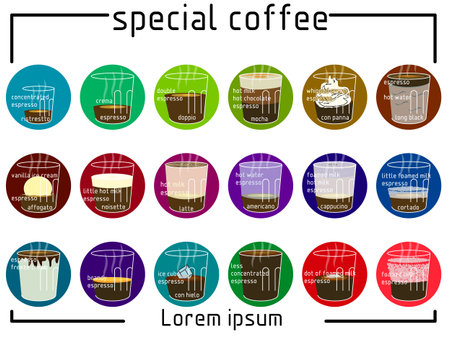1. The Science Behind Caffeine and the Brain
Ever wonder why that morning cup of coffee helps you feel more awake and alert? It all comes down to how caffeine interacts with your brain. Caffeine is a natural stimulant, and it primarily works by blocking a chemical in your brain called adenosine.
How Adenosine Affects Your Brain
Adenosine is a neurotransmitter that builds up in your brain throughout the day. As its levels rise, it makes you feel drowsy and ready for sleep. Think of it as your body’s natural way of telling you its time to wind down. When you drink coffee, caffeine steps in and blocks adenosine from attaching to its receptors. This prevents the sleepy signals from getting through, helping you stay more alert and focused.
Caffeines Role in Blocking Adenosine
| Without Caffeine | With Caffeine |
|---|---|
| Adenosine binds to receptors | Caffeine blocks adenosine receptors |
| You feel sleepy and tired | You feel more awake and alert |
The Dopamine and Norepinephrine Boost
Caffeine doesn’t stop at just blocking adenosine—it also has an impact on other important brain chemicals like dopamine and norepinephrine. These neurotransmitters are associated with mood, attention, and alertness.
- Dopamine: Often referred to as the “feel-good” chemical, dopamine plays a role in motivation and pleasure. Caffeine increases dopamine signaling, which can improve mood and mental performance.
- Norepinephrine: This chemical helps control your fight-or-flight response. By increasing norepinephrine levels, caffeine can sharpen your focus, especially when youre tired or under pressure.
Why This Matters for Focus
The combination of blocking adenosine and boosting dopamine and norepinephrine creates a powerful effect on concentration. That’s why many people find they’re more productive after a cup of coffee—it’s not just about staying awake; it’s about enhancing how your brain works.
2. Focus and Productivity: What the Research Says
When it comes to staying sharp at work or powering through a study session, many people turn to coffee for that much-needed mental boost. But what does science actually say about how caffeine affects focus and productivity? Over the years, several studies have explored caffeine’s impact on attention, alertness, and overall cognitive performance. Heres a breakdown of some key findings that help explain why your morning cup of joe might be doing more than just waking you up.
How Caffeine Affects the Brain
Caffeine works by blocking adenosine, a chemical in your brain that makes you feel tired. By doing so, it increases the activity of other neurotransmitters like dopamine and norepinephrine, which help improve mood, energy levels, and mental focus.
Key Benefits Backed by Research
Let’s take a closer look at what research has found regarding caffeines role in enhancing mental functions:
| Effect | What Studies Show |
|---|---|
| Attention | Moderate doses of caffeine (around 40–300 mg) have been shown to improve sustained attention and reaction time. |
| Alertness | Caffeine can significantly reduce feelings of fatigue, especially during low-energy times like early mornings or night shifts. |
| Memory and Learning | Some studies suggest caffeine may enhance short-term memory and help with information retention, particularly when learning new tasks. |
| Mental Performance Under Stress | Caffeine can help maintain focus and accuracy in stressful or high-pressure situations, such as exams or tight work deadlines. |
The Right Amount Matters
While caffeine does have positive effects on cognitive performance, more isn’t always better. Too much caffeine can lead to jitteriness, anxiety, or disrupted sleep—all of which hurt productivity in the long run. Most experts recommend sticking to moderate amounts (about 200–400 mg per day), which is roughly 1–3 cups of brewed coffee depending on strength.
Average Caffeine Content in Popular Drinks:
| Beverage | Approximate Caffeine Content |
|---|---|
| Brewed Coffee (8 oz) | 95 mg |
| Espresso (1 oz shot) | 63 mg |
| Iced Coffee (12 oz) | 120 mg |
| Black Tea (8 oz) | 47 mg |
| Soda (12 oz) | 30–40 mg |
A Quick Note on Tolerance
Your body can build a tolerance to caffeine over time. This means you might need more to feel the same effects. However, cycling your intake—taking occasional breaks from caffeine—can help reset your sensitivity and make that cup of coffee feel more effective again.
Caffeine has clear benefits when it comes to improving focus and productivity, especially in moderation. Understanding how it affects your brain can help you make smarter choices about when and how much coffee to drink throughout your day.

3. The Sweet Spot: Optimal Caffeine Dosage for Concentration
When it comes to using coffee to boost focus, more isnt always better. While caffeine can sharpen your attention and keep you alert, going overboard can lead to side effects like jitters, anxiety, or that dreaded afternoon crash. So how much is just right?
Finding Your Focus-Friendly Dose
The ideal amount of caffeine varies from person to person, depending on factors like age, weight, metabolism, and even your daily caffeine tolerance. But in general, most experts agree that a moderate dose works best for improving concentration without the unwanted side effects.
Recommended Daily Caffeine Intake
| Type of Coffee Drinker | Optimal Caffeine Range | Equivalent in 8 oz Cups of Coffee* |
|---|---|---|
| Light Drinker (sensitive to caffeine) | 40–100 mg | ½ – 1 cup |
| Average Drinker | 100–200 mg | 1 – 2 cups |
| Regular Drinker (higher tolerance) | 200–300 mg | 2 – 3 cups |
*Based on an average of 95 mg of caffeine per 8 oz cup of brewed coffee.
Avoiding the Crash Zone
Caffeine starts working within about 15 to 45 minutes after drinking coffee and can stay in your system for several hours. To avoid a mid-afternoon slump or trouble sleeping at night, try not to consume caffeine late in the day—generally after 2 p.m. is a good cutoff time for most people.
Tips for Hitting the Sweet Spot
- Start low and go slow: If youre new to coffee or sensitive to caffeine, begin with smaller amounts and see how your body reacts.
- Stay hydrated: Coffee is a mild diuretic, so balance it out with water throughout the day.
- Pair with food: Drinking coffee on an empty stomach can increase jitteriness. Try having it with breakfast or a light snack.
- Listen to your body: If you notice increased heart rate or restlessness, consider reducing your intake.
The key is balance—enough caffeine to help you feel focused and alert, but not so much that it backfires. Everyone’s sweet spot is different, so it may take a little trial and error to find yours.
4. Coffee Culture and Workplace Performance in the U.S.
Coffee isn’t just a morning pick-me-up in the United States—it’s a deeply ingrained part of daily life, especially at work. Across offices, coffee machines hum as early as 7 a.m., fueling employees for a productive start to their day. But beyond its role as a caffeine source, coffee shapes social interactions, work habits, and even productivity expectations.
The Morning Routine
For many American workers, the day doesn’t officially begin until they’ve had their first cup of coffee. Whether brewed at home or picked up from a drive-thru on the way to work, this ritual is often seen as essential for mental clarity and focus. Its common to hear phrases like “I cant function without my coffee”—a testament to how coffee consumption is tied to readiness and alertness at work.
Coffee Breaks: More Than Just a Pause
Coffee breaks are part of office culture across industries. These short pauses serve dual purposes: giving employees time to recharge and encouraging informal conversations that can foster teamwork and idea sharing. In fact, some companies have designated coffee corners or lounges designed to promote collaboration over cups of joe.
Common Coffee Habits in the Workplace
| Time of Day | Typical Activity | Purpose |
|---|---|---|
| 8:00–9:00 AM | Morning coffee upon arrival | Boost alertness and prep for meetings |
| 10:00–11:00 AM | Coffee break with colleagues | Recharge energy and connect socially |
| 2:00–3:00 PM | Afternoon coffee run | Fight post-lunch fatigue and refocus |
Coffee and Productivity Expectations
In fast-paced industries like tech, finance, and marketing, staying sharp is crucial—and caffeine is often seen as a tool to maintain performance under pressure. Employers sometimes provide free gourmet coffee or espresso machines as a workplace perk, signaling an understanding that focused employees are productive employees.
A Symbol of Hustle Culture
Coffee has also become symbolic of American hustle culture. The image of someone with a laptop in one hand and a latte in the other is now iconic. It reflects the belief that being busy—and caffeinated—is part of being successful. While this mindset isnt without criticism, it shows how closely linked caffeine and concentration are in the modern American work environment.
5. Mindful Sipping: Tips for Using Coffee Effectively for Focus
When it comes to boosting focus, it’s not just about drinking coffee — it’s about drinking it smart. By paying attention to timing, what you eat with your coffee, and the type of coffee you choose, you can get the most out of your caffeine without overdoing it. Heres how to make your daily cup work harder for your mental clarity.
Best Time to Drink Coffee for Mental Clarity
Your body naturally produces cortisol — a hormone that helps keep you alert — especially in the morning. Drinking coffee when cortisol levels are already high can reduce its effectiveness and increase tolerance over time. Instead, try these timing tips:
| Time of Day | Coffee Strategy |
|---|---|
| 6am–9am | Avoid or limit coffee; let natural cortisol do its job. |
| 9:30am–11:30am | Great window for your first cup to boost focus mid-morning. |
| 1pm–3pm | A second small cup can help fight post-lunch drowsiness. |
| After 3pm | Skip caffeine to avoid disrupting sleep. |
Pairing Coffee With Nutrition
Coffee on an empty stomach can lead to jitters or crashes. Pairing it with the right foods helps balance blood sugar and supports sustained concentration. Try combining your coffee with:
- Healthy fats: Avocado toast, nuts, or nut butter help slow caffeine absorption and keep you full longer.
- Protein-rich snacks: Eggs, Greek yogurt, or a protein smoothie stabilize energy levels.
- Complex carbs: Whole-grain toast or oatmeal provide steady fuel for your brain.
Choosing the Right Type of Coffee
The kind of coffee you drink matters too. Not all brews have the same caffeine content or effects on your body and mind. Here’s a quick breakdown:
| Coffee Type | Caffeine (8 oz) | Best For |
|---|---|---|
| Brewed Drip Coffee | 95-200 mg | Reliable energy boost, great for morning focus. |
| Espresso (1 shot) | 63 mg | Quick lift without too much volume; good for short breaks. |
| Cold Brew | 150-240 mg | Smoother taste; often higher in caffeine — sip slowly. |
| Decaf Coffee | 2-5 mg | Evening ritual or placebo effect without stimulation. |
Pro Tip:
If youre sensitive to caffeine but still want the mental boost, try half-caff options or mix regular coffee with decaf to find your perfect balance.


